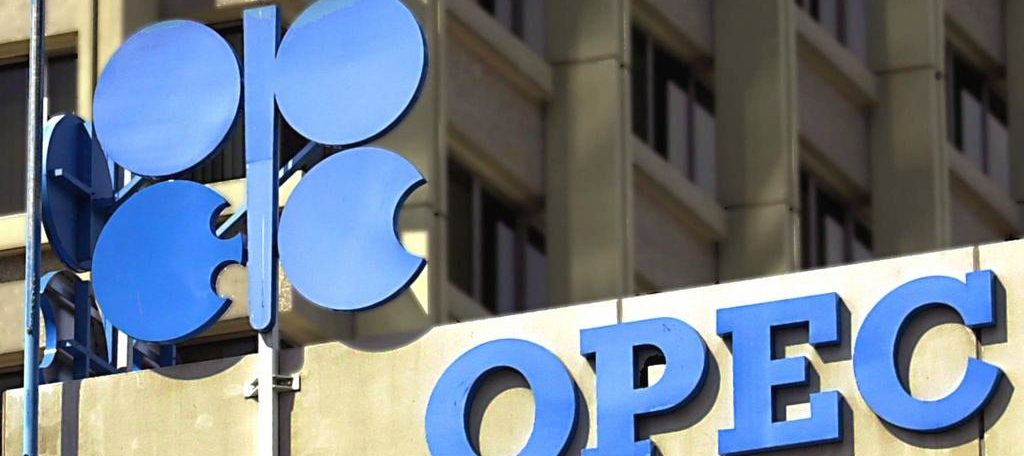In this article we explained the Organization of the Petroleum Exporting Countries (OPEC), the history, formation, organization and structure.
What is OPEC?
The Organization of the Petroleum Exporting Countries (OPEC) is an organization enabling the co-operation of leading oil-producing countries in order to collectively influence the global oil market and maximize profit.
It was founded on 14 September 1960 in Baghdad by the first five members (Iran, Iraq, Kuwait, Saudi Arabia, and Venezuela)
The organization, which currently comprises 12 member countries, accounted for an estimated 30 percent of global oil production. A 2022 report further details that OPEC member countries were responsible for approximately 38 percent of it. Additionally, it is estimated that 79.5 percent of the world’s proven oil reserves are located within OPEC nations, with the Middle East alone accounting for 67.2 percent of OPEC’s total reserves.
Brief History
In 1949, Venezuela initiated the move towards the establishment of what would become OPEC, by inviting Iran, Iraq, Kuwait and Saudi Arabia to exchange views and explore avenues for more regular and closer communication among petroleum-exporting nations as the world recovered from World War II.
In February 1959, as new supplies were becoming available, the multinational oil companies (MOCs) unilaterally reduced their posted prices for Venezuelan and Middle Eastern crude oil by 10 percent. Weeks later, the Arab League’s first Arab Petroleum Congress convened in Cairo, Egypt, where the influential journalist Wanda Jablonski introduced Saudi Arabia’s Abdullah Tariki to Venezuela’s observer Juan Pablo Pérez Alfonzo, representing the two then-largest oil-producing nations outside the United States and the Soviet Union.
In a series of steps in the 1960s and 1970s, OPEC restructured the global system of oil production in favor of oil-producing states and away from an oligopoly of dominant Anglo-American oil firms (the “Seven Sisters”). In the 1970s, restrictions in oil production led to a dramatic rise in oil prices with long-lasting and far-reaching consequences for the global economy. Since the 1980s, OPEC has had a limited impact on world oil-supply and oil-price stability, as there is frequent cheating by members on their commitments to one another, and as member commitments reflect what they would do even in the absence of OPEC. However, since 2020, OPEC countries along with non-OPEC participants had helped in stabilizing oil markets after COVID19 pandemic resulted in a collapse in oil demand. This has allowed oil markets to remain stable relative to other energy markets that experienced unprecedented volatility
Formation of OPEC
The formation of OPEC marked a turning point toward national sovereignty over natural resources. OPEC decisions have come to play a prominent role in the global oil-market and in international relations. Economists have characterized OPEC as a textbook example of a cartel (a group whose members cooperate to reduce market competition) but one whose consultations may be protected by the doctrine of state immunity under international law.
Former OPEC Secretary-General Mohammad Sanusi Barkindo has clarified the role of the organization with his statement: “OPEC is neither a monopoly nor a cartel, but a platform for stability in oil markets, serving the interests of producers, consumers, and the global economy. “This aligns with OPEC’s declared objective to coordinate and synchronize the oil policies of its member states. The organization is committed to stabilizing and ensuring equitable pricing for oil producers, securing a consistent and cost-effective supply of oil to consumer countries, and providing a reasonable return on investments for those involved in the petroleum sector.
Current OPEC members are Algeria, Equatorial Guinea, Gabon, Iran, Iraq, Kuwait, Libya, Nigeria, the Republic of the Congo, Saudi Arabia, the United Arab Emirates and Venezuela. Meanwhile, Angola, Ecuador, Indonesia, and Qatar are former OPEC members. A larger group called OPEC+, consisting of OPEC members plus other oil-producing countries, formed in late 2016 to exert more control on the global crude-oil market. Canada, Egypt, Norway, and Oman are observer states.
Organization and structure
In a series of steps in the 1960s and 1970s, Organization of the Petroleum Exporting Countries (OPEC) restructured the global system of oil production in favor of oil-producing states and away from an oligopoly of dominant Anglo-American oil firms (the Seven Sisters). Coordination among oil-producing states within OPEC made it easier for them to nationalize oil production and structure oil prices in their favor without incurring punishment by Western governments and firms. Prior to the creation of OPEC, individual oil-producing states were punished for taking steps to alter the governing arrangements of oil production within their borders. States were coerced militarily (e.g. in 1953, the US-UK-sponsored a coup against Mohammad Mosaddegh after he nationalized Iran’s oil production) or economically (e.g. the Seven Sisters slowed down oil production in one non-compliant state and ramped up oil production elsewhere) when acted contrary to the interests of the Seven Sisters and their governments.
The organizational logic that underpins OPEC is that it is in the collective interest of its members to limit the world oil supply in order to reap higher prices. However, the main problem within OPEC is that it is individually rational for members to cheat on commitments and produce as much oil as possible.
Leadership and decision-making
The OPEC Conference is the supreme authority of the organization, and consists of delegations normally headed by the oil ministers of member countries. The chief executive of the organization is the Organization of the Petroleum Exporting Countries (OPEC) secretary general. The conference ordinarily meets at the Vienna headquarters, at least twice a year and in additional extraordinary sessions when necessary. It generally operates on the principles of unanimity and “one member, one vote”, with each country paying an equal membership fee into the annual budget. However, since Saudi Arabia is by far the largest and most-profitable oil exporter in the world, with enough capacity to function as the traditional swing producer to balance the global market, it serves as “OPEC’s de facto leader”.

